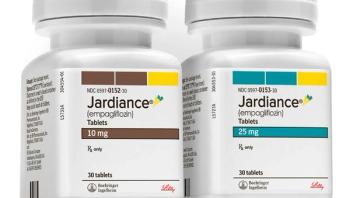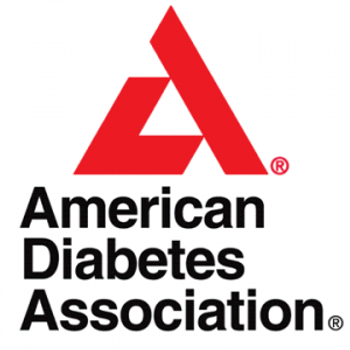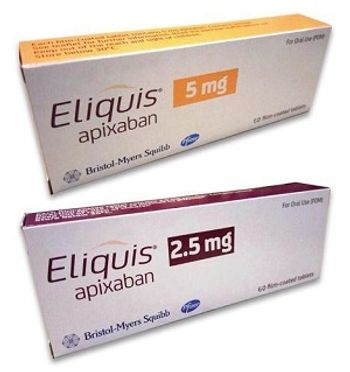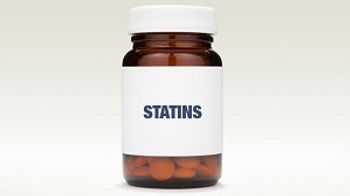
Cardiovascular
Latest News

Latest Videos

CME Content
More News

The chief executive officer and president of CVS Health said the integration of CVS and Aetna is well underway—even while it complies with a US district court that is reviewing the deal—more than a month after the acquisition closed.

The initial trial made news because the results were at odds with ACCORD. This new analysis highlights the need for personalized diabetes care, especially among older adults.

Findings in Hypertension, published by the American Heart Association, suggest a need to identify those at early risk of dementia.

With everyone carrying a smartphone, there's no reason why digital health tools and apps cannot be leveraged to hold at-risk patients accountable for cardiovascular health.

Here are the top 5 articles for the month of December.


This week, we recapped the top news from 2018 with a look at policy changes, new research, decisions at the polls, and more.

From the Editor in Chief of Evidence-Based Diabetes Management.™ Dr Gabbay is senior vice presdient and chief medical officer of Joslin Diabetes Center in Boston, Massachusetts.

A perspective on the current FDA guidance for diabetes therapies.

Of US women between the ages of 15 and 49, 64.9% use some form of contraception, and the use of long-acting reversible contraceptives is increasing; people with prolonged opioid use have an increased risk for cardiovascular problems, but they are also more likely to develop major surgery complications; there are an estimated 11 million undocumented immigrants in the United States, and they struggle to receive basic medical care.

The COORDINATE-Diabetes seeks to explore what happens between development of clinical guidelines and their translation into clinical practice.

An estimated 30 million Americans are living with diabetes. Additionally, 84 million have prediabetes, a condition that will result in type 2 diabetes within 5 years if not properly treated. Long regarded as one of the most prevalent chronic diseases in United States, diabetes is also a leading cause of disability and the seventh-leading cause of death. Less discussed is one of the most common complications of diabetes: diabetic foot ulcers. If not properly treated with standard and adjunctive care, these chronic wounds can lead to permanent disability and premature death.

The 2019 Standards of Care reflect an ongoing collaboration between the American Diabetes Association and the American College of Cardiology.

Two of The American Journal of Managed Care®'s top 5 most-read news stories were themselves top-5 roundups of hot topics in healthcare this year. The list was rounded out by cardiovascular, diabetes, and cancer news.

A forecast from the American College of Cardiology covers trends from therapy to technology to value-based care.

A batch of studies appearing in recent months have linked Medicaid expansion with lower death rates in renal failure, more efforts to quit smoking, and earlier detection of cancer. There are mixed outcomes in chronic disease, but an important clinical trial in Oregon shows that over the long haul, Medicaid expansion makes a difference.

The authors say while guidelines look at the benefits of statins to prevent cardiovascular disease (CVD), they do not adequately assess the harms. The new model takes this into account.

Researchers described the study as one of the first to examine how strength training can reduce the risk of cardiovascular disease, separate from the effects of aerobic activity like running or long walks

Every week, The American Journal of Managed Care® recaps the top managed care news of the week, and you can now listen to it on our podcast, Managed Care Cast.

New reports from the CDC have highlighted troubling increasing trends in suicides and drug overdose rates as life expectancy in the United States declined.

Atherosclerosis and peripheral artery disease are significant long-term complications of diabetes that demand more education and quality care to prevent limb loss. The conclusion of National Diabetes Month offers an opportunity to draw attention to ways to prevent these outcomes and screen for them early.

Novo Nordisk plans to seek FDA approval for the GLP-1 receptor agonist in the first half of 2019.

A 2015 study sponsored by the National Institutes of Health made a change in blood pressure guidelines seem inevitable. But there is disagreement between the standards promoted by societies for family physicians and those for cardiologists, leading to confusion for those in daily practice.

Every week, The American Journal of Managed Care® recaps the top managed care news of the week, and you can now listen to it on our podcast, Managed Care Cast.

This week, the top managed care news included research that showed c​​​​ancer surpassed cardiovascular disease to be the leading cause of death in high-income counties; HHS Secretary Alex Azar announced a new mandatory payment model is coming to oncology; a policy change could make mental health treatment more available.

















